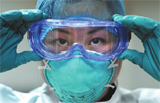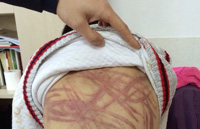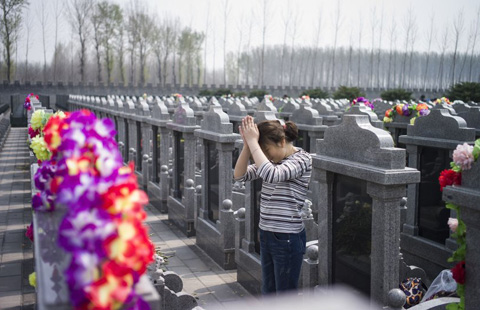Beijing to test hospital reform
By Shan Juan and Wang Qingyun (China Daily) Updated: 2012-05-25 04:27The new pricing system will also help reduce patients' out-of-pocket costs because doctors will have less incentive to prescribe drugs, Han said.
The city's medical reform office's survey shows that patients visiting a general practitioner will save about 11 yuan with the new pricing plan, as 1.3 billion yuan more will be expended on the public health insurance fund for covering the fees.
"Whether the initiative works well to help reduce patients' costs and improve service quality needs professional assessment later," Wu said.
Hu Shanlian, a professor of public health at Fudan University in Shanghai, agreed.
"Patients' reactions and opinions should be reviewed primarily while assessing the reform measures," Hu said on Monday.
"We have to check whether the patients' out-of-pocket heath-care costs go up or down," he said.
The policy may lower the incentive to prescribe unneeded, expensive drugs, "but other loopholes remain, like performing unnecessary medical examinations," he said.
Moreover, many drugs are already marked up before the hospitals get them, and in many cases physicians directly receive kickbacks from pharmaceutical companies, according to Hu.
"The new initiative will hardly put an end to that," he said.
Hu said doctors' incomes currently come from medical service fees, hospital income from the 15-percent markup on drug, hongbao — tips — from patients, and kickbacks from drug companies for drug sales.
Given that the measures so far do not touch upon other medical procedures, like surgery fees, "I'd still give hongbao to a surgeon before an operation," said Wang Lingli, a middle school teacher in Beijing.
"To stop the practice of hospitals relying on drug sales for income is totally right, but how to make up for the economic loss medical institutions incur still crucially needs to be studied," Hu said.
Given that the practical situations vary in different regions, public hospital reforms cannot be uniform, he added.
According to Hu, Shanghai will initiate reforms in October at four large public hospitals in the Pudong New Area and the city suburbs.
The precise measures remain undecided but approaches like introducing new insurance payment methods are included, he said.
Before reform pilots at large urban public hospitals, the Ministry of Health unveiled trials at county-level public hospitals in 2010.
According to a ministry plan, some 300 county-level hospitals will see a change in their funding this year.
Wu Ming said reform to county-level hospitals was easier to implement and would help in acquiring experience that could be applied to hospitals in large cities.
Wu said the reform of large urban public hospitals will require a partnership among different health, finance, human resources and social security authorities.
Hu said the reform also aimed to curb fast-rising medical expenditures in the country, which registered an annual growth of 15 to 20 percent.
"The ever-increasing part mainly came from drug sales and it's mainly the patients who took care of that," he said.
Contact the writers at shanjuan@chinadaily.com.cn and wangqingyun@chinadaily.com.cn
- China's chemical plant fire resurfaces
- Blast 'may reignite chemical worries'
- New air routes set to alleviate congestion
- Portrait of a post-95: an enterprising tech 'geek'
- Phone booths are given Baymax makeover
- Last military group heads to S. Sudan
- Former Nanjing mayor gets 15 years in prison
- Traffic woes increase on urban roads
- Three injured in chemical plant blast
- Nation sets occupational pension standards for government employees







